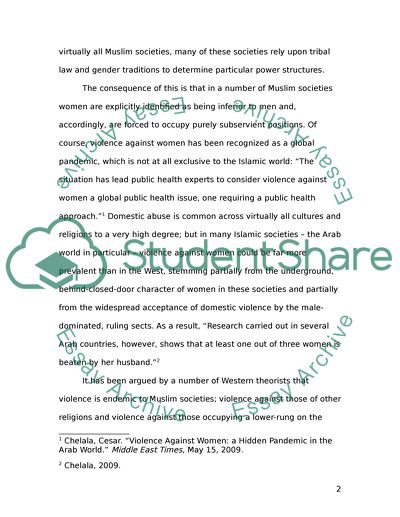Cite this document
(Women in Muslim Society Essay Example | Topics and Well Written Essays - 1750 words, n.d.)
Women in Muslim Society Essay Example | Topics and Well Written Essays - 1750 words. https://studentshare.org/sociology/1505336-women-in-muslim-society
Women in Muslim Society Essay Example | Topics and Well Written Essays - 1750 words. https://studentshare.org/sociology/1505336-women-in-muslim-society
(Women in Muslim Society Essay Example | Topics and Well Written Essays - 1750 Words)
Women in Muslim Society Essay Example | Topics and Well Written Essays - 1750 Words. https://studentshare.org/sociology/1505336-women-in-muslim-society.
Women in Muslim Society Essay Example | Topics and Well Written Essays - 1750 Words. https://studentshare.org/sociology/1505336-women-in-muslim-society.
“Women in Muslim Society Essay Example | Topics and Well Written Essays - 1750 Words”. https://studentshare.org/sociology/1505336-women-in-muslim-society.


